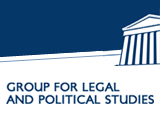
For all the talk about cyberwar, what does it actually mean?
In a recent policy brief, Myriam Dunn defines it as “warlike conflict in the virtual space that primarily involves information technology means.”
According to her, it’s the last rung on the ladder of cyberconflict, as measured by potential damage.
While milder forms of cyberconflict – cybervandalism, internet crime and cyberespionage – are relatively frequent, we lack established knowledge on potentially more destructive forms such as cyberterrorism and cyberwar. This is why the debate on cyberwar is extremely prone to speculation, she warns.
You can download the paper here.
Also, you may want to check the ISN’s Digital Library for further resources on information and cyber warfare.



